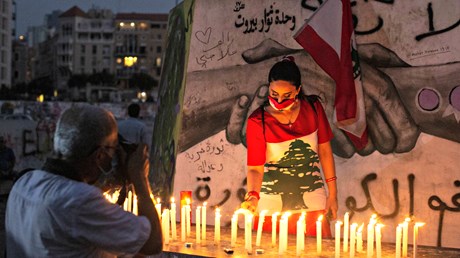One month since the blast, emotional support comes from evangelicals, refugees, children, and other unexpected sources.

One month since the blast, emotional support comes from refugees, children, and other unexpected sources.
To a traumatized child, a teddy bear can make a big difference.
But as the handful of Lebanese evangelicals trained in counseling are emphasizing in the aftermath of the Beirut explosion, so can an ordinary individual.
“I don’t think the sit-with-a-psychologist model works with a communal culture,” said Kate Mayhew, country representative for the Mennonite Central Committee (MCC) in Lebanon.
“A lay person might be fearful of doing harm. But there is a lot they can do.”
There is a lot that needs to be done.
An impact assessment conducted by Strategy& in the worst affected neighborhoods of Beirut found that 3 in 4 respondents were suffering anxiety two weeks after the blast.
Nearly 7 in 10 were experiencing disturbing dreams, and 6 in 10 reported difficulty doing household chores.
And according to UNICEF, 50 percent of its respondents said their children were showing signs of trauma and extreme stress.
In the poverty-stricken Karantina district directly in front of the port, one child clutched a bag of distributed bread to his chest, rocking back and forth. Though by then such food was readily available, he was imitating the adults who fought and scrambled to grab their share in the first chaotic days of emergency response.
“He was the hungry kid, the frightened kid, and the active kid all combined in one,” said Mayhew. “He desperately wanted to show his parents he could also provide for his family.”
An MCC partner organization was already on the scene, having set up a mobile clinic and counseling sessions for the adults. Eventually they noticed the kids mulling around, otherwise ...
from Christianity Today Magazine https://ift.tt/2DJZ54F
No comments:
Post a Comment